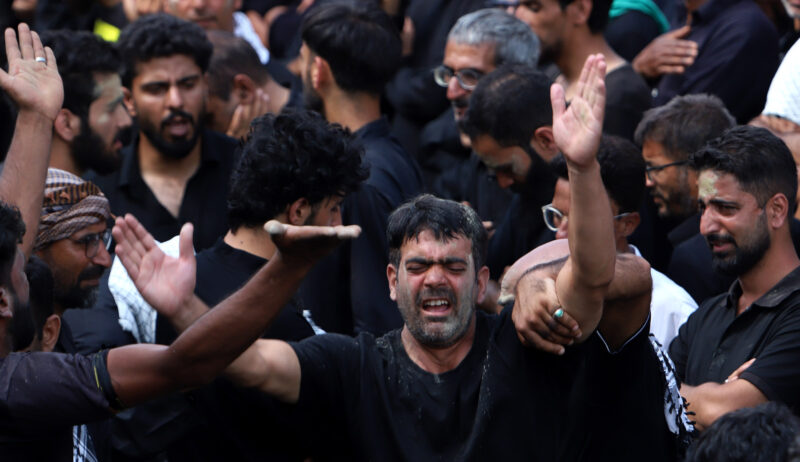“Qatl-e-Hussain (AS) asal mein marg-e-Yazeed hai
Islam zinda hota hai har Karbala ke baad.”
As the month of Muharram begins, streets across the world—especially in the subcontinent—are draped in black banners, expressing unwavering solidarity with Hazrat Imam Hussain (AS) and disdain for Yazid and his followers who martyred the beloved grandson of Prophet Muhammad (PBUH) in one of history’s most defining moments of moral resistance.
The story of Karbala has not been forgotten. In fact, it is being retold for generations. Our parents and teachers have taught us that Hussain (AS) didn’t simply die – he gave his life to uphold the truth. I still remember preparing speeches for Ashura during my school days. At school programmes hosted by our Shia friends, we would proudly recite them, expressing a shared love and reverence for the message of Karbala.
Despite growing up amid polarizing narratives and the rise of misleading literature, our faith in Hussainiyat—the values embodied by Imam Hussain (AS)—remained unshaken. We mourn quietly as we remember the unimaginable pain: the murder of a seven-year-old child, the cruel denial of water from the Euphrates, and the torment endured by the Prophet’s family. Yet, we also recognize divine wisdom in this tragedy. The sacrifice was not just a moment in history; it was a spiritual legacy meant to exalt truth over falsehood for all time.
Expressions of devotion may vary, and some may not agree with every method of mourning or protest against Yazid’s legacy. But the essence of Hussainiyat—resisting injustice, standing for truth, and upholding human dignity—remains universal. It is a flame that continues to guide humanity through its darkest hours.
The love for Imam Hussain (AS) and the Ahlul Bayt is not just emotional or cultural—it is a foundational part of Islamic belief, rooted in the Quran and Hadith. Karbala teaches us that submission to a tyrant is not an option, even at the cost of one’s life. Imam Hussain (AS), along with his 72 companions including women and children, bore unimaginable hardship not for political power, but to awaken the moral conscience of the ummah.
Tragically, when we look at many of today’s leaders and policymakers, we find Hussainiyat missing from their decisions. Their choices are driven by short-term gain, blind to the long-term consequences. They choose convenience over courage.
Imam Hussain (AS) does not belong to any sect, nor is Yazid the villain of just one community. Hussainiyat is a legacy for all Muslims—and indeed, all of humanity. Whether or not the historical details reached us in perfect form over 1400 years, what remains undisputed is the purity of Imam Hussain’s stand: it was a stand for justice, truth, and moral clarity.
The Prophet (PBUH) said, “Hussain is from me, and I am from Hussain.” This bond should be our moral compass.
Imam Hussain (AS) did not sacrifice his life to earn spiritual privileges he already held. He rose to reform the Muslim community, to stir it from indifference and confront the decay in leadership. In his powerful call to moral action, lies the eternal message of Karbala—one that transcends creed, nation, and time.







